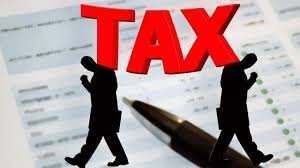earn more than Rs 3 lakh? If your income is up to this threshold, pay no taxes.
Income tax rebate: Under section 87A, you were able to receive a tax refund of up to Rs 25,000 under the current tax regime and a maximum of Rs 12,500 under the previous one. However, you can only get this rebate if your income is above a certain threshold. Learn more about income tax refunds by reading on.

You might not be required to pay income tax at all, even if your income is higher than the basic exemption cap. The Income-tax Act, 1961's section 87A, which permits Indian citizens to request a tax refund under both the old and current tax systems, is to blame for this. But this rebate is only available if your entire income stays below the designated cutoff point.

The threshold is Rs 5 lakh under the previous tax system and Rs 7 lakh under the new tax regime for FY 2023–24 (AY 2024–25). The maximum tax refund available under the previous tax regime was Rs 12,500; under the new tax scheme, it is up to Rs 25,000.
If your income exceeds the basic exemption limit or if you have engaged in specific activities, you must file an income tax return (ITR). It is important to remember that filing an ITR and paying income taxes are two different things. You are exempt from paying income tax due to the section 87A tax rebate, but you still need to file an ITR.
When may you file a section 87A tax refund claim?
To be qualified to receive a section 87A tax rebate, a person must meet specific requirements. Following are the requirements as per income tax laws:
Individual who is a resident of India, and whose total income after deducting allowable expenses under sections 80C, 80D, etc. does not surpass Rs. 5 lakh (under the previous tax system) or Rs. 7 lakh (under the current tax regime) after deducting amounts under section 80CCD (2).
What's Your Reaction?





















